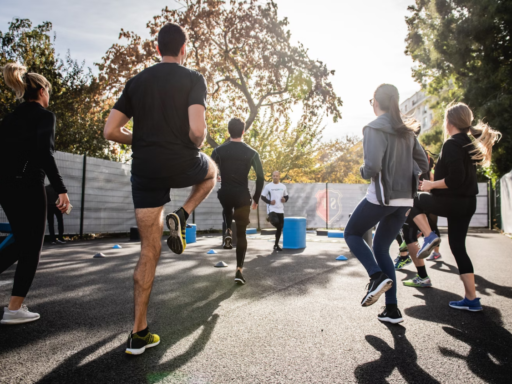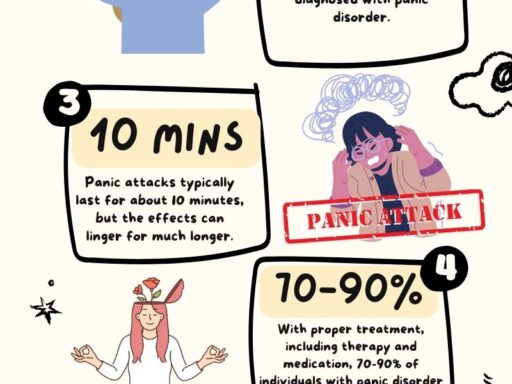Everyone deals with anxiety from time to time. It is a natural way for our body to respond to anything that it perceives as dangerous.
Anxious people feel scared and worried over something. While it was natural to feel that way, it could lead to emotional, cognitive, and even physical effects.
Some people may have trouble with their breath, trembling, and sweating. Negative thoughts occur and make people feel like they don’t have control over their mind and body.
If you or anyone you know dealing with anxiety, you can use these tips and strategies to manage both immediate symptoms and recurring issues.
Immediate Anxiety Coping Tips
Take care of the unwanted situation immediately with these tips and strategies:
1. Deep Breathing
When worry overcomes you and makes you feel anxious, stop for a while and take a breath. Try to relax your mind and body with the deep breathing technique by:
- Sit down and be comfortable.
- Close your eyes.
- Inhale slowly for four counts and hold it down for four counts as well.
- Exhale for four counts and repeat the step for several minutes.
- Be present, and focus on your breathing.
- Aromatherapy
Some research suggests that aromatherapy could help when dealing with anxiety. Light up an incense or aromatherapy candle with soothing scents such as chamomile and lavender to wind down. Combine it with a deep breathing technique for a better result.
- Get Moving
Redirect your mind and body by focusing on something else. Get moving and work out, walk in the garden, call your friend, finish some work chores, or do anything else to distract the mind from the things that bother you.
Strategies to Deal with Long-Term Anxiety
In the case of severe anxiety, you need to consult a professional, such as a psychiatrist or psychologist. They can help with the diagnosis, give it a thorough evaluation, and provide counseling.
Strategies to work on long-term anxiety coping strategies, including:
- Identify The Anxiety Trigger
Find out the occurrences that usually trigger the anxiety. It could be anything from work stress, certain medications, illness, and everything else. By identifying the trigger, you can prepare better and know exactly how to deal with it.
- Physical Exercise
Working out regularly works well not only for your physical health but mental health as well. Get moving and work out to calm your mind down. Go for a walk, jogging, yoga, or other types of exercise.
- Journaling
Prepare a journal and write down everything in your daily life. It works great to keep track of things that are happening, where you can recognize the things that stress you out and what makes you calm down.
- Challenge Your Mind
Anxiety could happen because your mind overthinks everything and blows it out of proportion. Learn to recognize the thought patterns that lead to anxiety.
Challenge that thought pattern by writing it down. Ask yourself if it is true or if it is something you only imagined. Break the pattern and focus only on what is real.
- Socialize
Socializing could help in many ways. It helps to deal with loneliness, encourages laughter and happiness, and also motivates you to do better. Socializing with the right people helps you to be more resilient against anxiety.
- Counseling and Therapy
Counseling and therapy work effectively, especially for severe anxiety. The common therapy used for anxiety is CBT or cognitive behavioral therapy. It works by gradually exposing you to your anxiety trigger and teaching you how to deal with it.
- Meditation
Master the thoughts running in your head with meditation. Done regularly, it may help to deal with anxious thoughts whenever they arrive.
It may require some time to successfully do meditation, but the benefit is too good to ignore. Meditation apps could help you achieve successful meditation.
- Medication
This strategy is only given by a professional mental health counselor. When they deem it necessary, they will give you medication to lessen your symptoms.
- Lifestyle Changes
Change into a better lifestyle. Watch your daily food intake and sleep quality.
People with sleep issues are at a higher risk of developing anxiety. So make sure to get enough quality sleep; the recommendation is 6 to 8 hours per day.
The food that goes into your body also plays a part in the stress level. Go for a healthier diet, start consuming more vegetables and fruit, and go for less sugar and alcohol.
Conclusion
Anxiety is a normal occurrence that happens to anyone from time to time. A simple breathing technique and distracting your mind from the trigger could help you deal with this issue.
But when anxiety happens daily and last for a long time, and starts to affect your life and performance, you need to take more action. In any doubt, consult a professional mental health provider who could help you diagnose and provide the perfect treatments.







